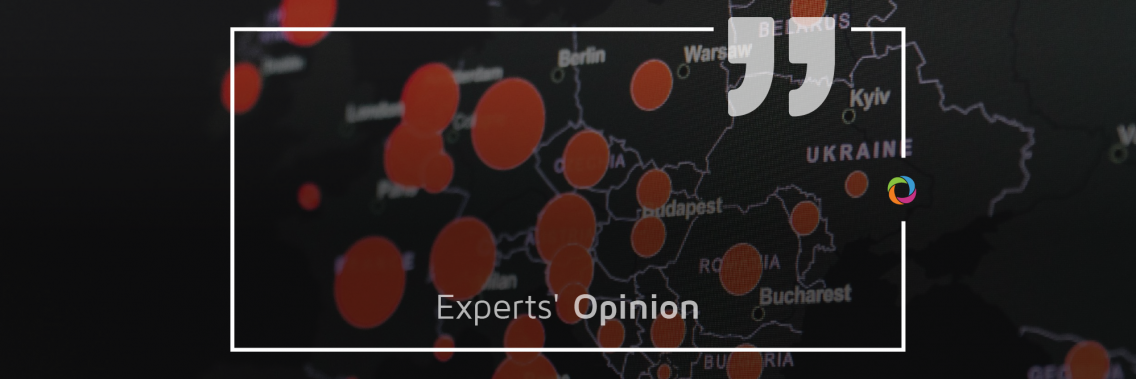It is no news that COVID-19 has turned the world upside down. The pandemic has affected international relations and caused diplomatic tensions. Several reasons for this exist including the trade and transport of medicines, diagnostic tests and hospital equipment relating to the treatment of the coronavirus. We talked to several international relations experts to find out which relations will be the most affected and how this will affect international aid.
In your opinion, which international relations will be the most affected?

“The liberal globalization led to a questioning of the nation-state model and its principles such as sovereignty, national interest or its territoriality. However, in the context of the COVID-19 pandemic, we have seen the nation-state, in its individuality, as the main actor in addressing the crisis. The supranational bodies have remained, in general, passive. For example, the World Health Organization (WHO) has been powerless and several states have even questioned its usefulness. Therefore, the COVID-19 pandemic has reaffirmed the nation-state as the only entity able to face a crisis and will also lead to international relations being more equal since countries supposedly less developed than Western countries have managed the crisis much better than them.”

“Every nation has been challenged and is facing hard choices about how to manage the pandemic whilst geopolitical friction has taken a leap due to COVID-19. It is still debatable as to where the virus will hit the hardest in the context of international relations. There is no certain determinant as to how socio-political factors may converge to spark or aggravate crises nor is certain that the aftermath of the outbreak will be uniformly negative for diplomatic ties since, as with former experiences, natural disasters have tended to lessen conflicts between parties that don’t see eye to eye with the joint aim of rebuilding their societies.”

“A cursory look shows an apparent return to a strong state sovereignty based international system, more inward looking and more in control of domestic affairs, at the expense of globalization, international institutions and democracy. The resources of states have further dwindled accompanied by economic depression with increased demands from social services including the health sector. However, this weakening of the state, or economic depression, has not diminished the continuously increasing needs of businesses for global/international management with standardized rules and taxation systems. Similarly, the current crisis has strengthened the increasing cross border connections and internationalization of civil society and democratic resistance. The relatively weaker state, despite its current very visible attempts, will not be able to reassert its centrality and exclusivity. This weakening of state will mean more interdependence and thus an increased cross border cooperation and support by those who can give it to those who need it. Thus, I see that, once the dust of the immediate panic response to COVID-19 is over, there will be a world moved closer, more globalized, institutionalized with social welfare and democratic governance as its strong pillars, with fundamental changes to and replacements of existing institutions and rules of international engagement.”
How will this situation affect international aid?

“The COVID-19 pandemic has reminded everyone that all countries are interconnected, and that a crisis can cross the planet and impact the whole world in just a few weeks. Therefore, it seems important for national and international institutions to redefine and redirect development cooperation to those who really need it and to focus on efficiency and needs rather than on the calculation of potential economic and geopolitical benefits. It is therefore also important not to see international cooperation as a business with a heavy bureaucracy, but as a common good with flexible mechanisms that can not only help in a crisis, but also improve governance. The ownership of cooperation programs and control mechanisms has to be equally shared between the recipient and the donor.”

“The pandemic impacts directly upon aid flows as well as the utilization of existing humanitarian aid. The outbreak has the potential to wreak havoc particularly in states that are in the midst of conflict. Aid for key services such as food security and the treatment of other diseases has plummeted and the implications of such situations will cause a slump in the long term. In order to avert an economic and humanitarian catastrophe, governments need to ease diplomatic tensions in the shadow of COVID-19.”
Check out more than 450 job opportunities in international relations here.

